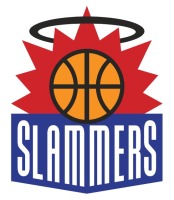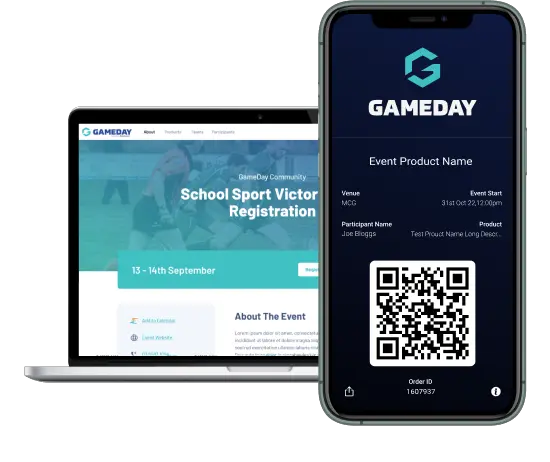Basketball SA Directions to Referees, Coaches and Players 2015
This document is to read in conjuction with the FIBA rules and relevant association By-Laws:
These directions are to apply to all levels of competition.
Ball carrier:
- keep the ball carrier clean:
-one hand on and stays on - will be called a foul - this applies anywhere on the court
- two hands or extended double arm bar -is an automatic foul
- continually jabbing the dribbler - will be called a foul
- using the body to move or direct the dribbler off his line or encroaching into the ball carriers cylinder forcing him to change his legal direction/line - will be called a foul.
- Put simply - no hands or contact (excluding incidental) on the ball carrier.
Player without the ball:
- when an offensive player (without the ball0 attempts to cut through/around the keyway and contact occurs by a defensive player who is moving or who leans or steps outside his cylinder in an effort to bump the cutter it will be called a foul. Incidental contact caused by normal player movement can be ignored.
Shooter Protection/Act of Shooting:
- Any contact on the shooter gives an advantage to the defence while putting the offence at a disadvantage.
- If a player is in the act of shooting and receives contact by a defensive player who is moving or who has hands/leans/steps outside his cyclinder this will be called a foul.
- The act of shooting and continous motion is from when the player picks up the ball(from dribble or pass) and continues until after the shot and both feet return to the floor. There is no relationship between the number of legal steps taken and the act of shooting.
- A player in the act of shooting who leaves the floor is entitled to return to the floor provided that is vacant when he first leaves the floor. Watch for the player who steps under the shooter or who contacts the shooter (especially in a lay-up situation) after the ball is released but before the player returns both feet to the floor. This is to be called a foul.
- If unsure if it is a shooting foul or sideline ball -it must always be a shooting foul.
_ If unsure to count the goal or cancel the basket -always count the goal.
Verticality:
_ A players cylinder extends from the floor to the roof and he is entitled to move within his cyclinder. Do not reward an offensive player by calling a foul on the defender when the defender remains in his cylinder and contact is caused by the offence jumping into the defence. This can also hand/arm contact on the shooter. Referee the defence and who caused the contact. Remember defender principles; Must have established legal guarding position then able to move sideways or backwards.
Unsportsmanlike:
- Any deliberate contact with an opponent must always be called an Unsportsmanlike Foul- it does not matter at what time this occurs. this includes a player NOT playing the ball and attempting to make contact (no matter how soft) in an effort to stop the clock.
- Remember the principles for an unsportsmanlike call -(a) player intent (a player must be making an "achievable'' effort to play the ball not the player) and/or (b) the severity (hardness) of the contact. This applies anywhere on the court. Example - A player who is knocked to the floor during a lay-up may be considered hard contact. Making a play for the ball does not overule unnecessary hard contact. Making a play for the ball does not overule unnecessary hard contact. If either one of the two principles, (a) or (b), applies it is to be called an Unsportsmanlike Foul.
Block/Charge:
- Block/Charge will be called as per the FIBA rules. Remember defender principles;- Must first have established legal guarding position (3F's - feet first and facing) then able to move sideways or backwards. In a 50/50 call if in any doubt whether you should call a Block or a Charge - the directive is to call it a Block.
Advantage/Disadvantage:
- Advantage/Disadvantage Will Not be applied in the following games:
All Senior Social/Domestic competitions division 2 and below and ALL Junior competitions instructions to officials - " see a travel - call a travel'', '' see the illegal contact -call the foul''.
- Advantage/Disadvantage Will applied in the following: Senior Social/Domestic competition 1.
Behaviour:
- Audible obscenities by a player or coach (this includes interval of play and time-outs - a coach cannot use obscenities while addressing his players at any time) must always be called a Technical Foul - no warning is required. The guiding principle - if it can be heard by a person sitting in the front row of the seating , it must be called a Technical Foul.
- The second time a player/coach disputes a referee's decision a public warning is to be issued - any further dispute by any team member must always be called a Technical Foul. Waving arms/hands or gestures in a negative manner may be considered disputing a decision.
- Communication between the officials and coach/player is to be kept to a minimum and must always be polite and at the correct/appropraite time. Apply FIBA rules.
- Spectator Behaviour - In Basketball SA competitions BSA By-Laws relating to spectator behaviour are to be enforced on each and every occassion. Ensure you are familiar with these By-Laws (rule 4.1)
Break Away Fouls:
- Break away fouls will be enforced as per FIBA rules. Contact from behind or beside a player at the point the fast break starts is an automatic Unsportsmanlike foul if there is no defensive player in front of the ball carrier and the basket. Other situations will be treated on their merits.
Travels:
- All obvious travels are to be called. "see and call the travel". The 3 step jump shot is to be penalised (generally the short step - lifting and replacing the pivot foot) to gain balance to execute his shot. The 3rd step ( lifting and replacing the pivot foot while still holding the ball) during a spin move is to be penalised.
Keyway Movement:
-' More than three seconds' exists to eliminate tall players parking in the restricted area as this gives them an unfair advantage. Call a 3 second violation on the player who disregards this principle. Do not call a 3 second violation on a player attempting to leave the keyway or when any player commences an act of shooting. This includes commencement of a lay-up or jump shot.
Time:
- Zero time: Officials need to be aware thta they and the players must be on the court ready to play when the countdown clock for the start of the game, any time-out or end of an interval reaches zero. This does not mean preparing to move onto the court. It means "Zero Time" is game start time or ready to start by throwing or passing the ball to the player.









